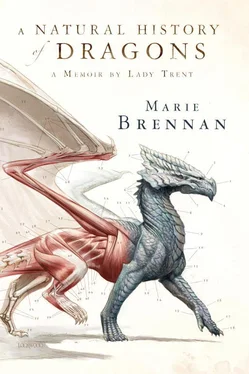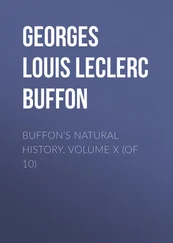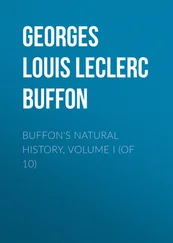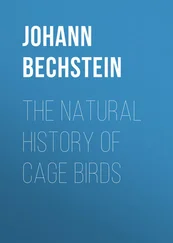How many shots was that? Eight? Ten? Would they carry clearly enough in the mountain air to draw the rock-wyrm’s attention to this place?
I had certainly occasioned a great deal of shouting. I wanted very badly to look whether the others were all right, but my respite lasted only a few seconds; then I scrambled once more to my feet and looked for a hiding spot, knowing someone would be after me, if they weren’t already.
Gunfire broke out again, this time more sporadically. My heart was torn; every shot, I hoped, increased the odds that a dragon would take offense, but it also meant my companions were in danger. Already I was cursing the impulse that had made me run: it seemed such a hopeless gamble. And yet, what better chance did we have? Run and be shot, or stay and do the same.
I plunged through a concealing screen of brush—and found myself mere feet from a terrified and very dirty Astimir.
More precisely, from the barrel of his rifle. But I had passed through fear to a region on the far side, where I could without hesitation do things that would have seemed unthinkable risks in the light of saner contemplation. I seized the gun’s muzzle and wrenched it aside, and either my conviction that he would not shoot me was powerful enough to convince him, too, or Astimir was paralyzed with his own fear, for he did not resist.
“The boyar is going to kill us,” I snarled, and grabbed him by the collar of his shirt. “He has already killed my husband. You helped create this disaster; you will damn well do something to fix it. Get out there and help. ” Upon that last word, I hurled him bodily toward the fight.
I honestly cannot tell you whether I remembered to speak in Vystrani or not. It may be that my tone sufficed all on its own. Astimir stumbled through the brush, and then I sallied after him, driven by grief and rage past the bounds of rationality, into a soaring state wherein I had lost all capacity for fear. My husband lay dead on the ground. I must do something more than run.
As if to give voice to my rage, from above came a furious, inhuman scream.
I had indeed managed to attract a dragon—and a very angry one at that.
The ruined wall blocked my view of what happened on the ground. I saw only the penultimate stage of the dragon’s stoop, and heard shots ring out from below. The wyrm screamed again, this time in pain.
Either none of the boyar’s men had made it this far in pursuit of me, or they had already gone past in their search. I swarmed up the wall, thinking the unexpected vantage point would give me a degree of protection from any guns, and looked down to the ground beyond.
The dragon was thrashing about, too wounded to regain the air. Its blood seemed to be everywhere, and the frantic beating of its wings, the quick whipping of its head and tail, made it almost impossible to parse the scene. I saw one of the soldiers, half behind a tree, taking aim for the dragon once more; then I spotted Mr. Wilker across the way, crouching for cover. A sudden twist of the dragon’s body revealed Khirzoff lying motionless, and my heart gave a savage leap; but it turned to pain a moment later as the soldier shot and the beast suddenly collapsed into the dirt, dead.
A banshee howl from just below me dragged my gaze downward. Heaven only knows what had gone through Astimir’s head during those days hiding in the ruins; I think it had rather unhinged him. I doubt it was any sort of vengeance for the fallen dragon, or even for us, that made him aim for the soldier and shoot. Whatever motivated him, the bullet struck true; the boyar’s man cried out and toppled backward down the slope. But there were still others now emerging from cover; and then I heard a snarl from behind me.
I twisted to see Rossi halfway up the wall, his discolored face contorted into an expression of animal fury. He was close enough to snatch at my foot, braced against the stone; I drew it up just in time. But he caught a handful of my skirt, and only a desperate clutch at the wall kept me from falling.
I kicked out, twice, three times, and struck his hand hard enough against the rock to make him swear and let go. Then I scrambled higher, drawing myself fully onto the top of the wall, less afraid in that instant of the men with the rifles than of the one pursuing me with single-minded madness. But there was nowhere to go; if I leapt off the wall, I should certainly break something, and be left easy prey.
The stone crumbled beneath Rossi, giving me a fleeting moment of hope. He caught himself, though, and clawed for a new handhold, after which it was the work of mere seconds for him to attain the top of the wall. I retreated as far as I could, but it put me barely out of arm’s reach, and there was nothing more behind me except a steep angle of broken rock and air.
Rossi paused, securing his balance. The mountain wind tried to make a sail of my skirt; soon it would carry me off my own precarious footing, and he would not get the satisfaction of killing me after all.
My attention was so fixed on him that I did not realize those tearing gusts of air were not solely from the wind until a shadow fell across us both.
The price of our victory — My reluctance to write — Rossi’s notebook — Its possible consequences — Our departure from Vystrana — Jacob — Lord Hilford’s offer
You may say it is pure fancy to think that the second dragon took Rossi and spared me because it somehow knew which of us was the enemy, and which a friend. I will agree with you. Vystrani rock-wyrms are intelligent enough to carry their dead to rest in that great cavern, but they have not the slightest shred of affection for humans, nor any care to distinguish friend from foe. But fancy or not, I have no other explanation for how, when that shadow beat flapping off from the wall, Rossi was screaming in its claws, and I was left untouched.
(Even fancy cannot explain how I managed to avoid falling, either. That, I must attribute to divine providence.)
The chaos left Khirzoff and Rossi both dead, along with two of their men; the others had fled. We were, in the end, saved by the dragons: a fitting revenge for their fallen brethren. And the boyar and his chemist were stopped. But the price of that victory had been so very high.
I sometimes think it has taken me this long to write my memoirs because I knew I could not avoid speaking of Jacob’s death.
The grief, of course, has faded. The Vystrani expedition was decades ago; I no longer weep into my pillow every night for his loss. But coming to terms with one’s sorrow is one thing; sharing it with strangers is quite another. And given how many of the events that led to his death can be laid at my feet, I was deeply reluctant to invite the sort of criticism that would—and still perhaps will—inevitably follow.
I will not attempt to lay before you the pain I suffered then. I have said what I can; it is insufficient, but then I am a scientist, and not a poet. My feelings are as strong as any woman’s, but I lack the words to express them. It is not true, what some said of me, that I never loved him: I have already refuted that argument. If it lacks the grand passion some demand, I will not apologize; I am who I am, and the sincerity of my affection, the worthiness of my marriage, are not things I care to debate.
Let us speak instead of what followed.
We would not leave the bodies for the scavengers, not even those of our enemies. The horses bore those to the hut, where we passed the night. The next day we returned to the village, and there Lord Hilford, Mr. Wilker, and Dagmira took on the unenviable task of explaining matters to everyone.
The reactions ranged from doubt to anger. The boyar was not loved, but we Scirlings were even more strangers to the people of Drustanev than he was; no one was in a hurry to believe us, and furthermore the explanation for the dragon attacks was not one that could be easily proven. Many people were also worried—very understandably—for what consequences might fall upon them as a result of Khirzoff’s death.
Читать дальше












